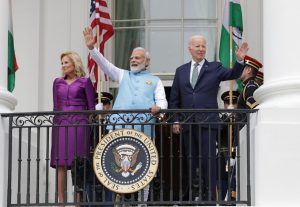That the Ministry of Cooperation is supremely important for the Narendra Modi government was made clear with the PM handing over the newly-minted ministry to Home Minister Amit Shah, the number two in the government.
The additional charge was given to Shah as part of the major reshuffle of the Cabinet that saw 12 sitting ministers being axed and 36 new faces being inducted. The reshuffle took the strength of the Cabinet to 78, including the PM, just a shade short of the stipulated 81.
Also read: PM Modi’s cabinet reshuffle: Who gets what
The Ministry of Cooperation announced on Tuesday is meant to boost the cooperative movement in the country. “It will provide a separate administrative, legal, and policy framework for strengthening the cooperative movement in the country. It will help deepen co-operatives as a true people-based movement reaching up to the grassroots,” the ministry’s vision statement said.
This was preceded by the Centre’s order in 2020 to take over the supervision of 1,540 urban and rural cooperative banks through an ordinance, a decision that many parties had resisted, including the NCP and the CPM. Many analysts said that the administrative decision to monitor banks, which handle thousands of crores of rupees, had a tinge of politics.
Also read: In mega cabinet reshuffle, Modi government includes 7 women in council
So, what are cooperatives and why is it so important that it got its own ministry? Is there politics behind the seeming administrative decision.
Let’s take a look:
What are cooperatives?
Cooperatives are people-centred enterprises– including banks — owned, run and controlled by members to achieve common economic, social, and cultural goals. Cooperatives are meant to help farmers, small-time workers to streamline production and finances and to provide financial aid when needed.
Cooperative network in India
The country has networks of cooperatives at the local, regional, state and national levels. The commodities that are mostly handled are food grains, jute, cotton, sugar, milk, fruit and nuts. Maharashtra and Kerala are among the states with the strongest cooperative networks.
Also read: Behind the 3 high-profile exits from PM Modi’s cabinet
Most of the sugar production in India takes place at mills owned by local cooperative societies.
The money factor
The cooperative, enterprises and banks, deal with thousands of crores of rupees and it is alleged that many political entities are heavily invested in them. Almost a third of India’s 1,500-plus urban cooperative banks are in Maharashtra with total deposits of Rs 2.93 lakh crore. A large number of these banks are controlled by NCP leaders, reports the Indian Express.
Also read: Why PM Modi’s top 4 remain untouched in big cabinet rejig
In Kerala, co-operative banking network in the state has more than Rs 70,000 crore deposits and at least 70% of these banks are being managed by CPI(M)-backed outfits, according to reports. With so much money in circulation, it would be interesting to note the impact the decisions of the new ministry will have on the cooperatives. More interesting to watch will be the political fallout.





